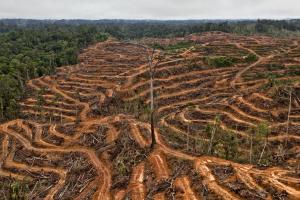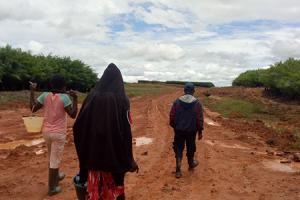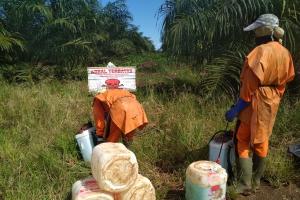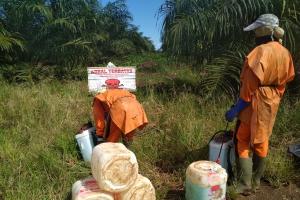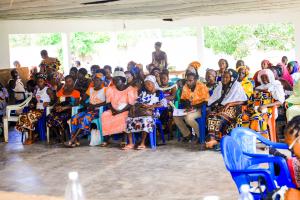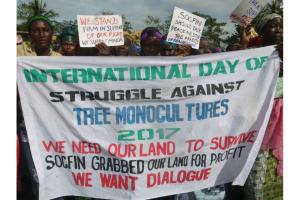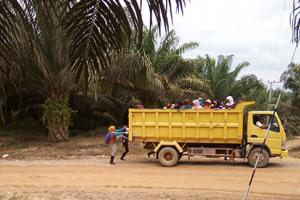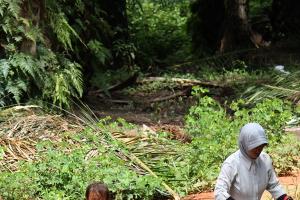Women in Resistance
When forests are destroyed, women in forest-dependent communities are hit hard: Their living conditions are particularly precarious; and providing food, medicine, materials and clean water becomes even harder. The traditional knowledge and wisdom that women pass down from generation to generation are also at risk. That is why women are often on the frontlines of the resistance to forest destruction.
Oil palm plantations are one of the most unsafe spaces for women, not only because of their vulnerable working status packed with injustices and precarities, but also because of the potential for sexual violence and harassment. (Available in Indonesian).
Patriarchal oppression is inseparable from the industrial plantation model, and it is at the base of how companies generate profits. Companies target women, including due to their fundamental role in community life.
Exploitative working conditions in the oil palm plantations’ industry in Indonesia are persistent and the main victims are mostly women. Although this situation is often overlooked, the production process of the world’s largest producer of palm oil is strongly influenced by its existence.
Dekel Oil’s false promises lure villagers into dangerous oil palm growing contracts in Cote d’Ivoire
Land owners in Cote d'Ivoire are trapped in contracts with Dekel Oil, a company that made false promises arguing villagers would become rich by signing contracts to let oil palm monocultures on their land.
The expansion of oil palm plantations in Indonesia has turned women into landless food buyers and cheap labour, with no adequate safety and health protection, for the plantation companies. (Available in Indonesian).
Women suffer many types of violence committed by oil palm plantations companies’ employers, security forces, police and military, which subsequently reinforce patriarchy and their roles and relations within society in general. (Available in Indonesian).
